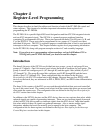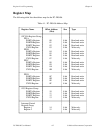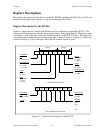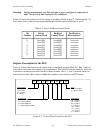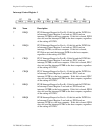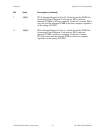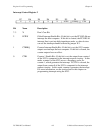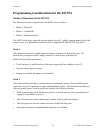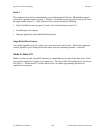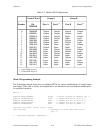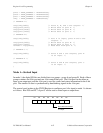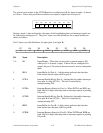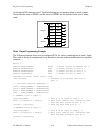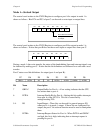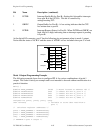Chapter 4 Register-Level Programming
© National Instruments Corporation 4-9 PC-DIO-96 User Manual
Programming Considerations for the 82C55A
Modes of Operation for the 82C55A
The three basic modes of operation for the 82C55A are as follows:
• Mode 0—Basic I/O
• Mode 1—Strobed I/O
• Mode 2—Bidirectional bus
The 82C55A also has a single bit set/reset feature for port C, which is programmed by the 8-bit
control word. For additional information, refer to Appendix B, OKI 82C55A Data Sheet.
Mode 0
This mode can be used for simple input and output operations for each of the ports. No
handshaking is required; data is simply written to or read from a specified port.
Mode 0 has the following features:
• Two 8-bit ports (A and B) and two 4-bit ports (upper and lower nibbles of port C).
• Any port can be input or output.
• Outputs are latched, but inputs are not latched.
Mode 1
This mode transfers data that is synchronized by handshaking signals. Ports A and B use the
eight lines of port C to generate or receive the handshake signals. This mode divides the ports
into two groups (group A and group B) and includes the following features:
• Each group contains one 8-bit data port (port A or port B) and one 4-bit control/data port
(upper or lower nibble of port C).
• The 8-bit data ports can be either input or output, both of which are latched.
• The 4-bit ports are used for control and status of the 8-bit data ports.
• Interrupt generation and enable/disable functions are available.



